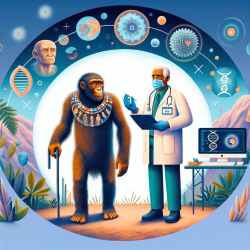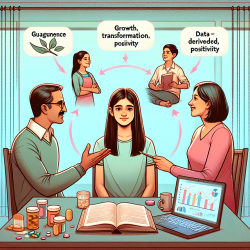The recent discovery of a Neanderthal child who likely had Down syndrome has sparked significant interest in both the scientific and educational communities. This finding, detailed in the research article "The child who lived: Down syndrome among Neanderthals?" provides profound insights into ancient caregiving practices and poses important questions about how we approach special education today.
The Implications of Neanderthal Caregiving
The study reveals that a Neanderthal child with a debilitating pathology survived for at least six years, suggesting that they received extensive care from their social group. This challenges previous assumptions about prehistoric societies and highlights the potential for compassion-driven caregiving, even in ancient times. For modern practitioners, this underscores the importance of community support and collaborative efforts in caring for individuals with disabilities.
Lessons for Modern Special Education
The case of the Neanderthal child offers several lessons that can be applied to contemporary special education practices:
- Community Support: Just as the Neanderthal child's survival depended on group efforts, today's students with disabilities benefit significantly from a supportive community. Encouraging collaboration among educators, therapists, parents, and peers is crucial.
- Compassionate Care: The notion that caregiving was driven by compassion rather than reciprocity can inspire educators to adopt more empathetic approaches in their interactions with students.
- Cultural Sensitivity: Understanding the diverse needs of students with disabilities requires cultural sensitivity and awareness. Educators should strive to create inclusive environments that respect and accommodate these differences.
The Importance of Further Research
This discovery opens new avenues for research into the evolutionary aspects of caregiving and its implications for modern society. Practitioners are encouraged to delve deeper into this topic to better understand how ancient practices can inform contemporary strategies in special education.










